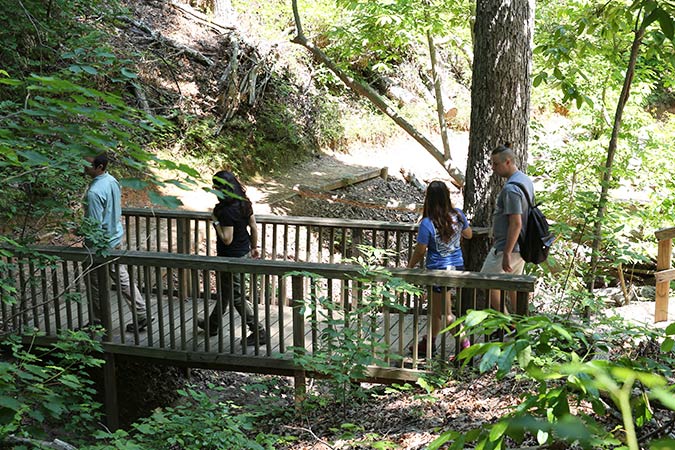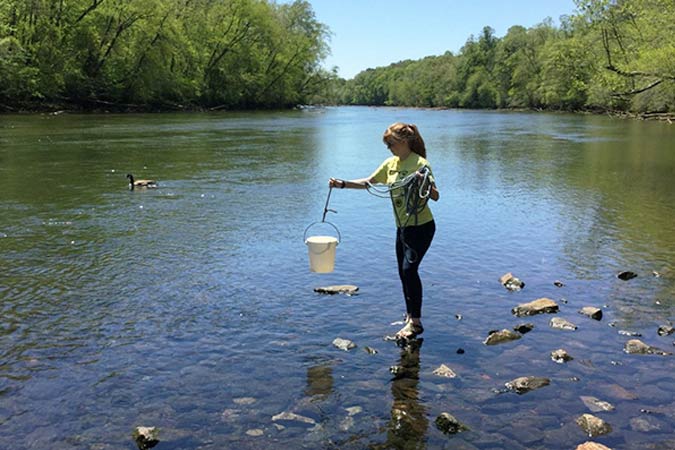Environmental Education Grant
In October 2018, an Environmental Education Grant from the EPA provided the University of North Georgia and experts from community partners to promote responsible, sustainable actions in the care and conservation of native forest ecosystems in North Georgia.
Students and members of the public will focus on learning comprehensive knowledge, application, technology, and environmental science skills on the environmental issues of invasive insect species, vegetation management, impairment of waterways due to sediment, soil and water quality issues affecting native forest ecosystems in urban, suburban, or rural communities, as all of these community types have native forest ecosystems in Georgia.
Contact Information
Project Objectives
- Motivate citizens to be good stewards of their communities and demonstrate the multitude of interlocking issues related to forest health through workshops and community outreach
- Help mitigate the issue of controlling invasive plant species without excessive use of pesticides by being able to identify native species and proper methods of treatment.
- Understand the importance of clean water to North Georgia ecosystems and Chattahoochee River Watershed through lectures on the chemical properties of pesticides/herbicides and the effects on soil and water quality.
- Conduct field lab exercises to monitor pesticide/herbicide run-off by using single use water quality test kits on water samples from Tumbling Creek and Hurricane Creek.
- Learn how to identify tree species, assess tree health, practice best timber management methods, and invasive pest sustainable practices for pesticide/herbicide use to reduce environmental harm when applied in riparian forests.
- Help citizen scientists and UNG assess the forest health of North Georgia by adding tree data to the Tree Identification Survey

